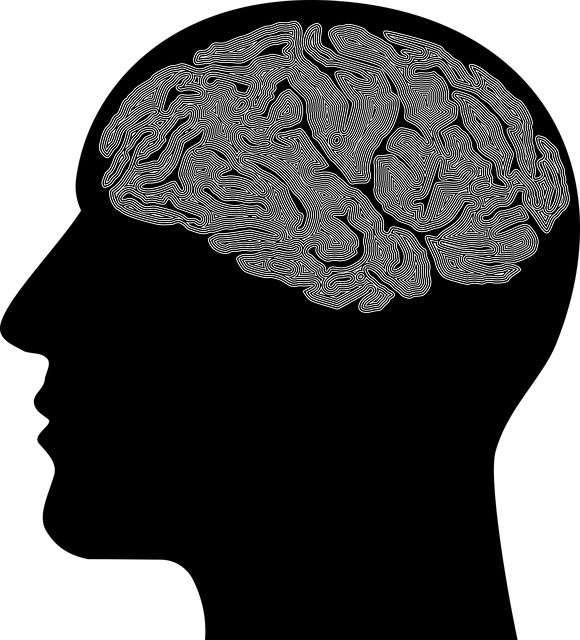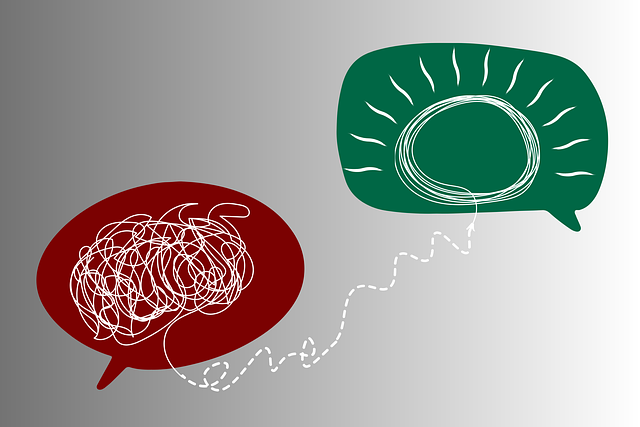Englewood Child Abuse Therapy employs a unique RFM framework (Recovery, Flexibility, Mastery) using Mind Over Matter principles to build resilience in children who have experienced trauma. Through mindfulness exercises, compassion cultivation and emotional regulation practices, the program guides participants to overcome adversity, promoting positive mindset shifts and transforming challenges into growth opportunities. Their holistic approach, focusing on interconnected physical, emotional and psychological well-being, aims to equip children with life skills for long-term mental health and emotional stability. The therapy extends beyond traditional sessions through resilience-focused exercises and the Mental Wellness Podcast Series, integrating emotional intelligence practices for stress management and self-care. Success is measured using a multifaceted evaluation approach, focusing on both quantitative data and qualitative insights to ensure sustainable coping skills and reduced risk of future abuse.
“Resilience is a powerful tool for recovery from trauma, especially child abuse. This article explores the effectiveness of RFM (Resilience, Strength, and Mastery) exercises in building mental fortitude. We delve into the profound impact of childhood trauma on psychological well-being and development, introducing Englewood Child Abuse Therapy as a holistic approach to healing. By implementing RFM strategies in therapeutic settings, we can empower individuals to overcome adversity. This comprehensive guide also offers insights into measuring the success of RFM programs, ensuring effective long-term recovery.”
- Understanding RFM and Its Role in Resilience Building
- The Impact of Child Abuse on Mental Health and Development
- Englewood Child Abuse Therapy: A Holistic Approach to Healing
- Implementing Resilience-Focus Exercises in Therapeutic Settings
- Measuring Success: Evaluating the Effectiveness of RFM Programs
Understanding RFM and Its Role in Resilience Building

Resilience is a vital asset for individuals to navigate life’s challenges and setbacks. This is where RFM (Recovery, Flexibility, and Mastery) comes into play, serving as a powerful framework for building resilience. At Englewood Child Abuse Therapy, we recognize that fostering resilience is essential, especially for children who have experienced trauma. By implementing the RFM principles, therapy sessions aim to empower individuals with the tools to cope effectively.
The Mind Over Matter Principles guide participants through exercises that enhance their ability to manage stress and emotions. Incorporating practices like Mindfulness Meditation and Compassion Cultivation can help individuals develop a sense of calm and self-compassion. These techniques enable one to view challenges as opportunities for growth, fostering a positive mindset shift. Through these resilience-building exercises, Englewood Child Abuse Therapy strives to equip clients with the skills to overcome adversity and thrive in various aspects of their lives.
The Impact of Child Abuse on Mental Health and Development

Child abuse, whether physical, emotional, or sexual, can have profound and long-lasting effects on a child’s mental health and overall development. Englewood Child Abuse Therapy highlights that victims often struggle with low self-esteem, anxiety, depression, and post-traumatic stress disorder (PTSD). These experiences can shape their perception of the world, leading to difficulties in forming healthy relationships and maintaining emotional stability as they grow up.
The impact extends beyond childhood, as many survivors carry these scars into adulthood. Without proper intervention and support, child abuse can result in chronic mental health issues, substance abuse, and even self-harm. Organizations like Stress Management Workshops aim to empower individuals through therapy and resilience building exercises, focusing on self-esteem improvement. Risk Management Planning for Mental Health Professionals is also crucial to ensure these professionals are equipped to handle the complex needs of abused children and their families effectively.
Englewood Child Abuse Therapy: A Holistic Approach to Healing

Englewood Child Abuse Therapy takes a holistic approach to healing, focusing on the interconnectedness of physical, emotional, and psychological well-being. This comprehensive strategy acknowledges that recovery from trauma is not solely about addressing symptoms but fostering resilience and overall life skills. The therapy program incorporates various exercises designed to enhance emotional regulation, build coping mechanisms, and support children in understanding and managing their emotions effectively.
By prioritizing these aspects, Englewood Child Abuse Therapy aims to not only alleviate the immediate effects of abuse but also to empower children with tools that will serve them throughout their lives. This includes mental illness stigma reduction efforts by creating a safe space where children can express themselves without judgment. Furthermore, through confidence-boosting activities, the therapy program encourages children to develop self-esteem and a sense of agency, helping them to break free from cycles of trauma and build a brighter future.
Implementing Resilience-Focus Exercises in Therapeutic Settings

Implementing Resilience-Focus Exercises in Therapeutic Settings at Englewood Child Abuse Therapy involves integrating activities that promote emotional intelligence and mental wellness. These exercises play a pivotal role in helping individuals, especially children, develop coping strategies to navigate life’s challenges. Through engaging in these therapeutic practices, clients can build confidence and enhance their overall resilience, fostering a sense of empowerment.
The Mental Wellness Podcast Series Production at Englewood Child Abuse Therapy offers a unique platform to extend the benefits of resilience-building exercises beyond the therapy room. By creating content that emphasizes emotional intelligence, the podcast encourages listeners to explore techniques for stress management, self-care, and boosting confidence. This multi-faceted approach ensures that individuals continue to build mental fortitude even after their formal therapeutic sessions conclude.
Measuring Success: Evaluating the Effectiveness of RFM Programs

Measuring success is a vital aspect of evaluating the effectiveness of Resilient Family Management (RFM) programs, especially in the context of organizations like Englewood Child Abuse Therapy that prioritize trauma healing and family resilience. The impact of RFM initiatives goes beyond immediate behavioral changes; it encompasses long-term emotional growth and enhanced coping mechanisms for both children and their caregivers. Success is therefore not just about reducing problematic behaviors but also fostering positive relationships, improving family dynamics, and equipping participants with sustainable coping skills.
To gauge the success of RFM programs, Englewood Child Abuse Therapy employs a multifaceted evaluation approach that incorporates quantitative data, such as pre-post assessments and progress tracking, with qualitative insights from both participants and therapists. This strategy allows for a comprehensive understanding of how RFM exercises contribute to burnout prevention and compassion cultivation practices. By regularly measuring improvements in emotional regulation, communication, and problem-solving skills, the therapy center ensures that its programs effectively develop coping skills and promote resilience, ultimately reducing the risk of future abuse and trauma.
The implementation of RFM and resilience-building exercises, as highlighted by Englewood Child Abuse Therapy’s holistic approach, offers a promising path forward in addressing the profound impacts of child abuse. By integrating these strategies into therapeutic settings, professionals can empower individuals to navigate life’s challenges with enhanced mental health and resilience. Measuring the success of these programs is crucial for refining and optimizing their effectiveness, ultimately fostering healthier, more resilient communities.












